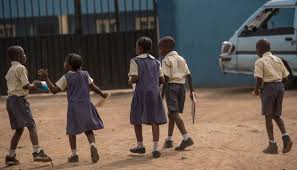Some parents in Enugu metropolis have raised concerns over what they described as unbearable increases in tuition fees and levies charged by private and faith-based schools in the state.
They said many nursery, primary and secondary schools owned by private and faith-based organisations had raised their fees and levies by between 20 and 50 per cent compared to the previous academic session.
A parent, Mr John Ude, said on Monday in Enugu that the development had added to the financial strain already faced by households struggling with the high cost of living.
*“I was surprised to hear from my children’s school principal that the school fees of my daughter in Junior Secondary 2 is now N150,000 as against N100,000 we paid last year.
“I asked for the reason behind the increment, and the principal said it was a directive from the proprietor, with no further explanation,”* he said.
Ude urged the government to intervene in what he described as arbitrary hikes, saying the burden was worsening the socio-economic situation of parents and guardians.
A housewife, identified simply as Mrs Ngozi, said a popular faith-based school in Amechi had increased fees beyond the reach of average parents.
According to her, last term she paid N85,000 per child for her three children, but this session the school announced a fee of N120,000 per child.
“Government should intervene and regulate these charges because education is supposed to be a social service and not a profit-driven venture, which most school owners are turning it into,” she said.
Mrs Juliet Ugwu, a civil servant, said she had decided to move her two children to a public school as she could no longer afford the new tuition fees.
“The school my children attend raised their fees to N150,000 per term as against N95,000 we paid last term. I cannot cope with that considering my take-home salary,” she said.
Some proprietors of private and faith-based schools defended the increment, saying it was necessary due to prevailing economic realities.
They cited inflation, higher utility costs, staff salaries and the need to maintain quality learning environments as reasons for the fee adjustments.
A school proprietor, Mr Emeka Mbah, said the adjustment in his school was aimed at sustaining operations without compromising standards.
*“We understand the concerns of some parents, but schools are also grappling with the same economic pressures.
“We cannot deliver quality education if we do not have competent teaching staff and the right instructional materials,”* Mbah said.
Another proprietor, Mr Chris Agbo, argued that despite the increments, private schools still bore the heavy burden of filling gaps left by government in the education sector, yet received no subventions.
Agbo added that many private schools were running at a loss, stressing that investment in education was capital intensive.
He maintained that without adjusting fees, most schools would not survive.
(NAN)


